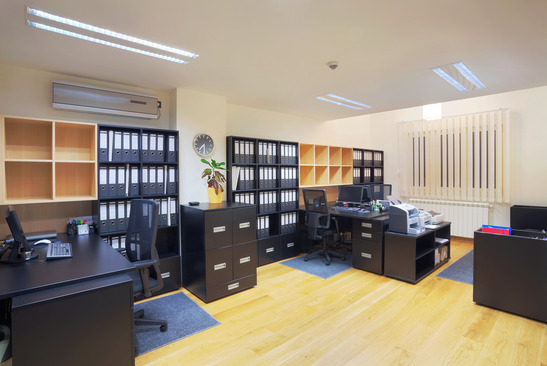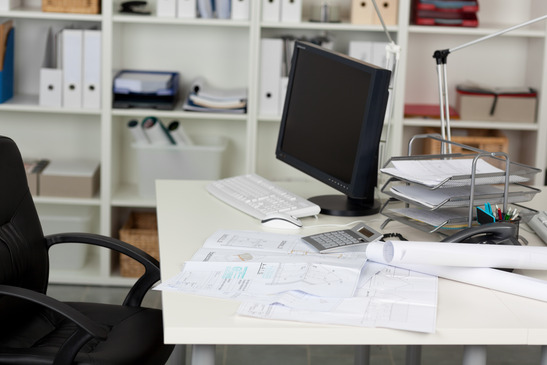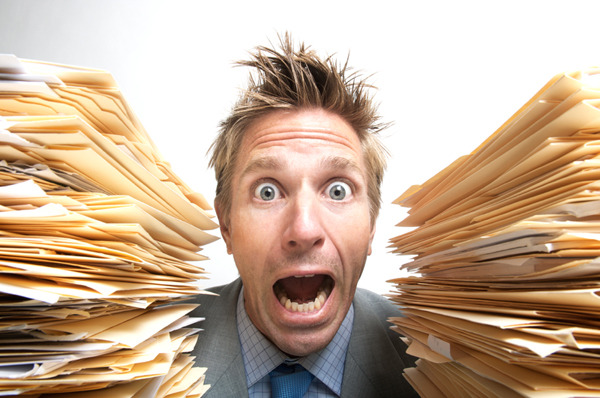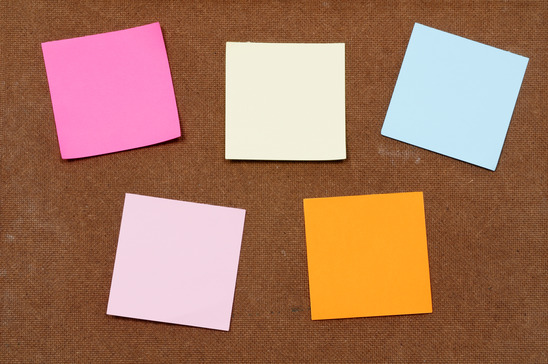Spring Clean Your Office Space: Decluttering to Improve Productivity

As much as you’d like to convince yourself that your chaotic office space is perfectly fine for your needs, chances are, it’s just not. Clear spaces and easy-to-find supplies are better for promoting productivity and studies show that workers with a neat workspace don’t mind spending as much time there as the ones who sit at a disorganized desk all day long.
Spring is a good time to get a handle on your office clutter and to give yourself an office space you can feel comfortable in. Whether you work in a cubicle or from your own home, these tips will help you de-clutter your office space and boost your productivity.

Desktop Space
Most people have, at minimum, a computer and telephone in the office, whether it’s at home or otherwise. But what about all the other items that seem to take up residence on your desk, demanding your attention and stealing minutes from your day? Try this simple exercise: remove everything that you don’t use every day and see what’s left. You’ll probably have your computer, phone, something to write with and something to write on. Add some post-its and that might be all you need.
Everything else needs a new home — but not stuffed into a drawer — or you could waste time later digging for it. Instead, decide whether you need to file, trash, or action the items and then act accordingly.

Filing Items
You don’t have to invest in large, bulky filing cabinets unless you do a lot of record keeping. Then you might want to invest in one with easy-to-label hanging folders. If you don’t have to access the items often, opt for off-site storage.
For smaller offices, concertina or accordion style folders work for filing a few important documents or keeping up with expense receipts. Three-ring binders and folders that fit inside them make an easy, instant storage option for invoices or project notes. Not only are these a versatile, inexpensive option, you can easily label the spine of each binder so that you know what is inside at a glance. Store these neatly — spine facing upward — in a drawer, or simply stand them on a spare shelf.
Trashing Items
An immaculate desk space is pointless if your trashcan is overflowing, so keep only the smallest can you need, and empty it daily. Shredding documents also helps you keep a clear desk. As you no longer need items, shred them and put them in the garbage that you will be emptying that day.

Action Items
If you have a busy office that leaves you with little time to deal with mail or invoices, set up a place to keep them at the front of your mind but out of your way until you can deal with them. A simple inbox and a basic labeling system are all you need to keep on track with your incoming items.
Using three different colors of post-its, choose one color for “urgent,” one for “moderate,” and one for “non-urgent.” For example, your light bill that needs to be paid by Friday would probably merit an urgent sticker, while something due in three weeks’ time could be labeled as non-urgent. To avoid overlooking any non-urgent items, reevaluate at the end of the week and re-label items if necessary.
Drawers
Try placing a few small baskets or trays inside a shallow drawer in your desk for all those useful office supplies. That helps eliminate digging around for a paper clip or pair of scissors and lets you see at a glance if you need any more of a particular office supply.

Use Space Wisely
If you have a tiny office space, keeping it clutter free can be challenging, but it’s not impossible. Use whatever space you have efficiently, including the backs of doors and wall space. Over the door hanging-storage options are perfect for smaller offices that need a little extra space to store files, bills, or even office supplies. Wall shelves can be made to fit any size wall and can provide plenty of extra storage for binders or books. Don’t be afraid to be creative — you may be pleasantly surprised by what you can come up with.